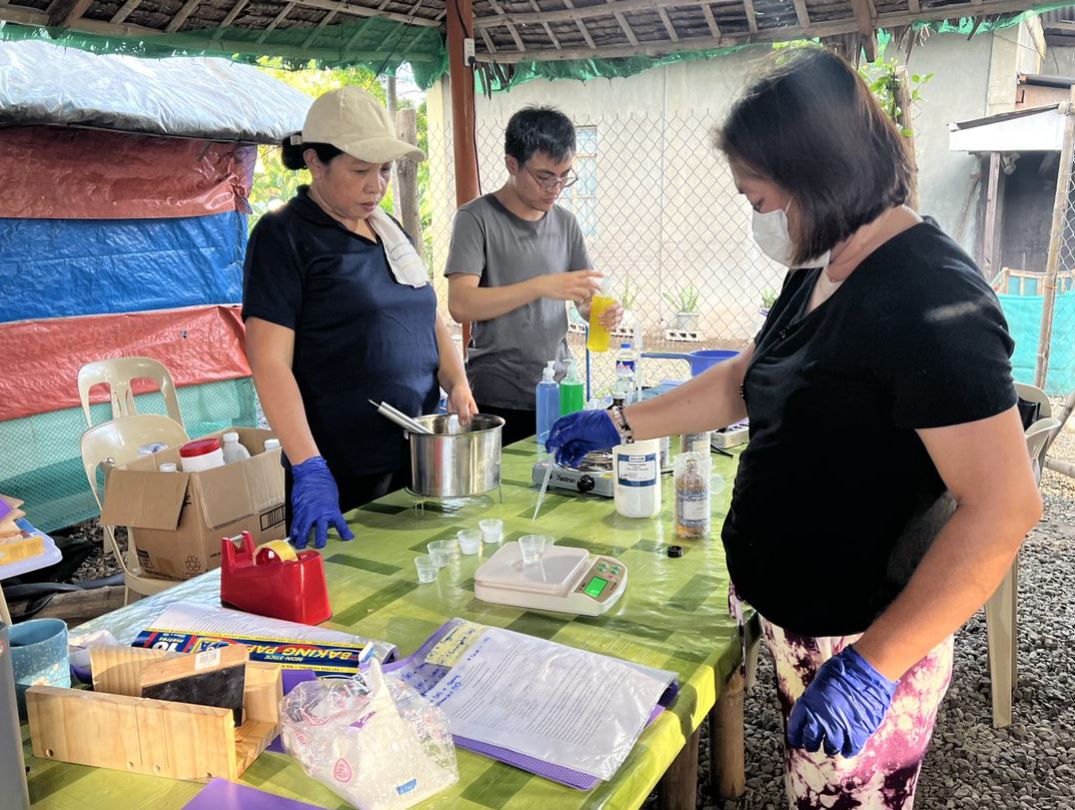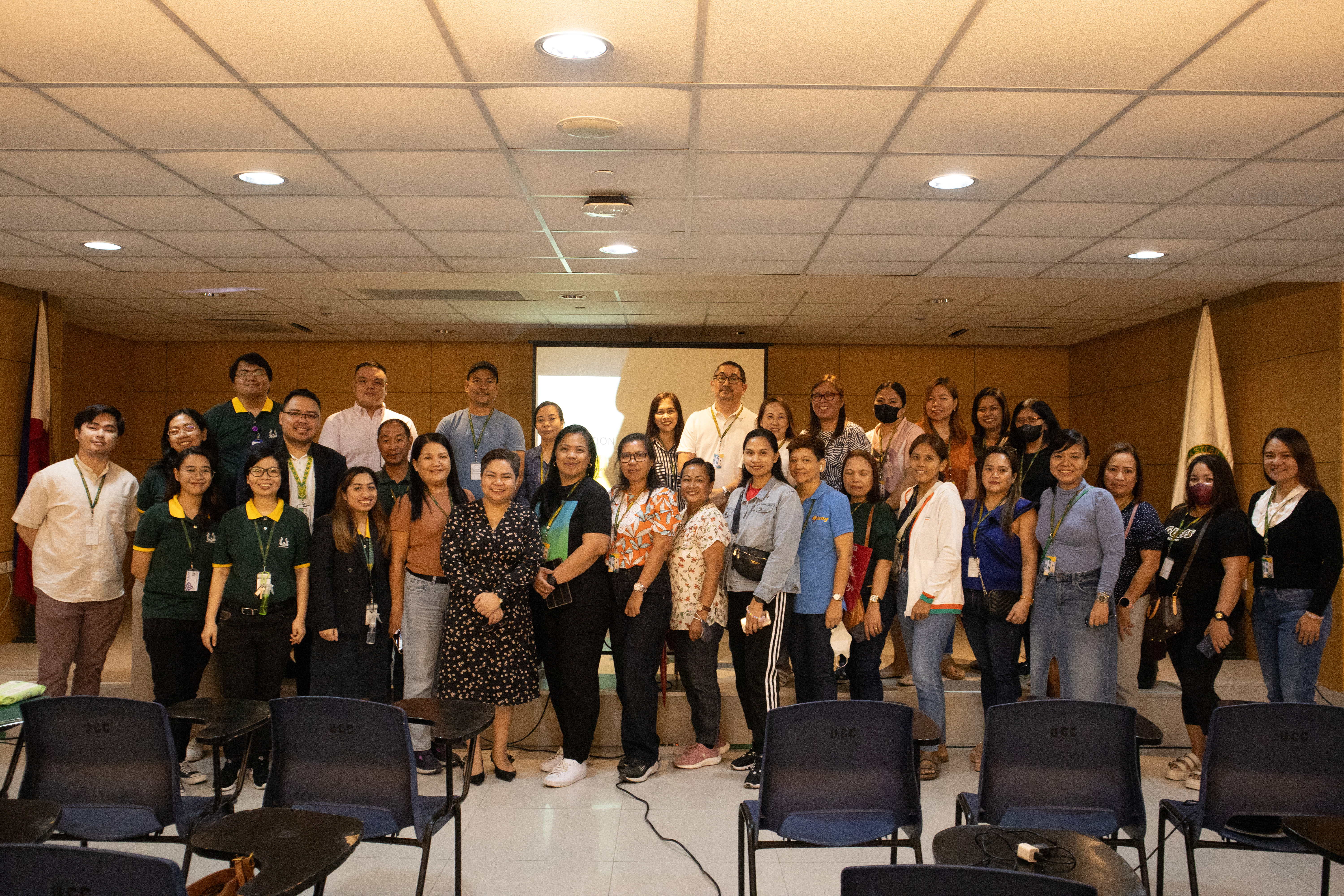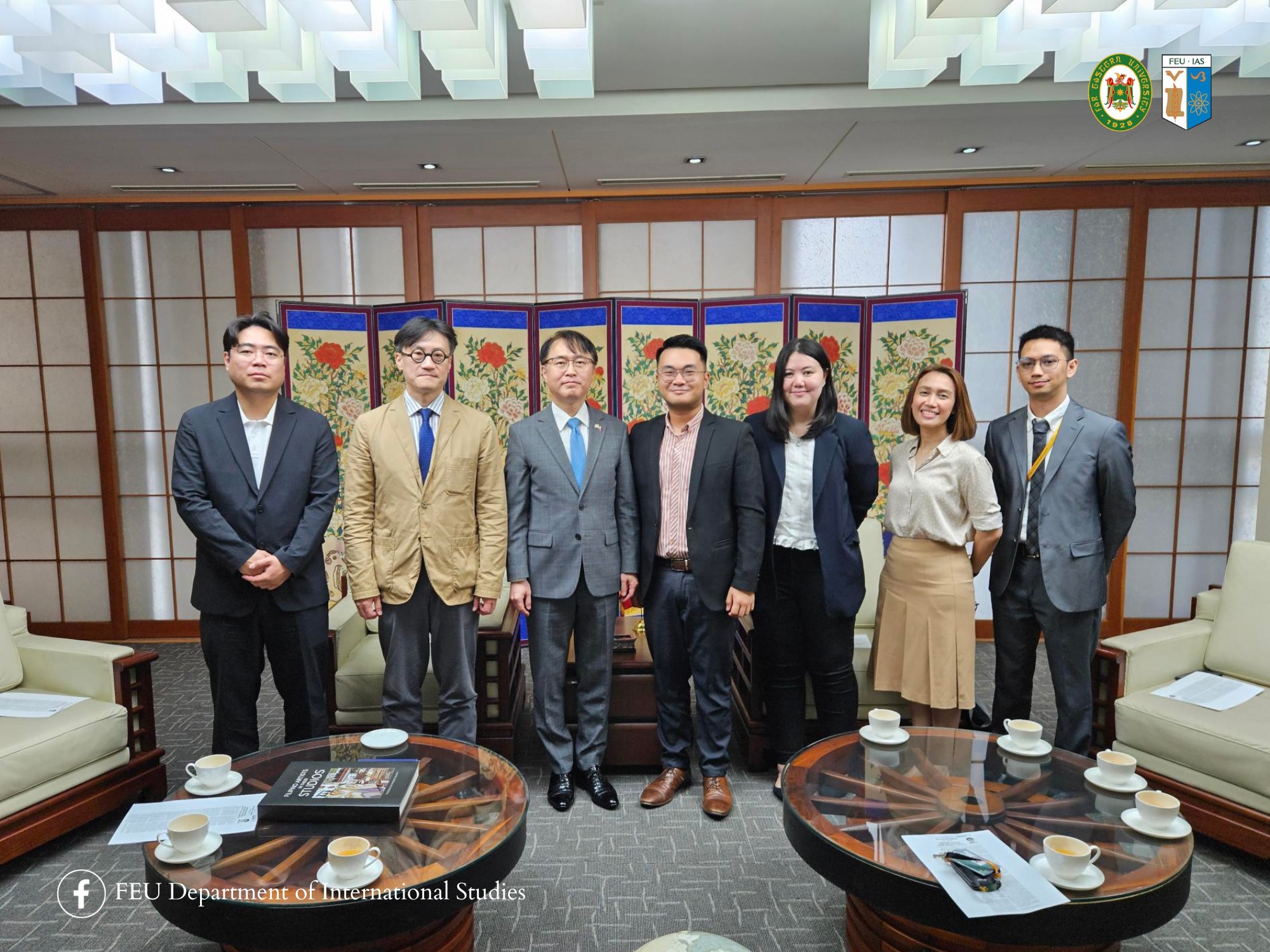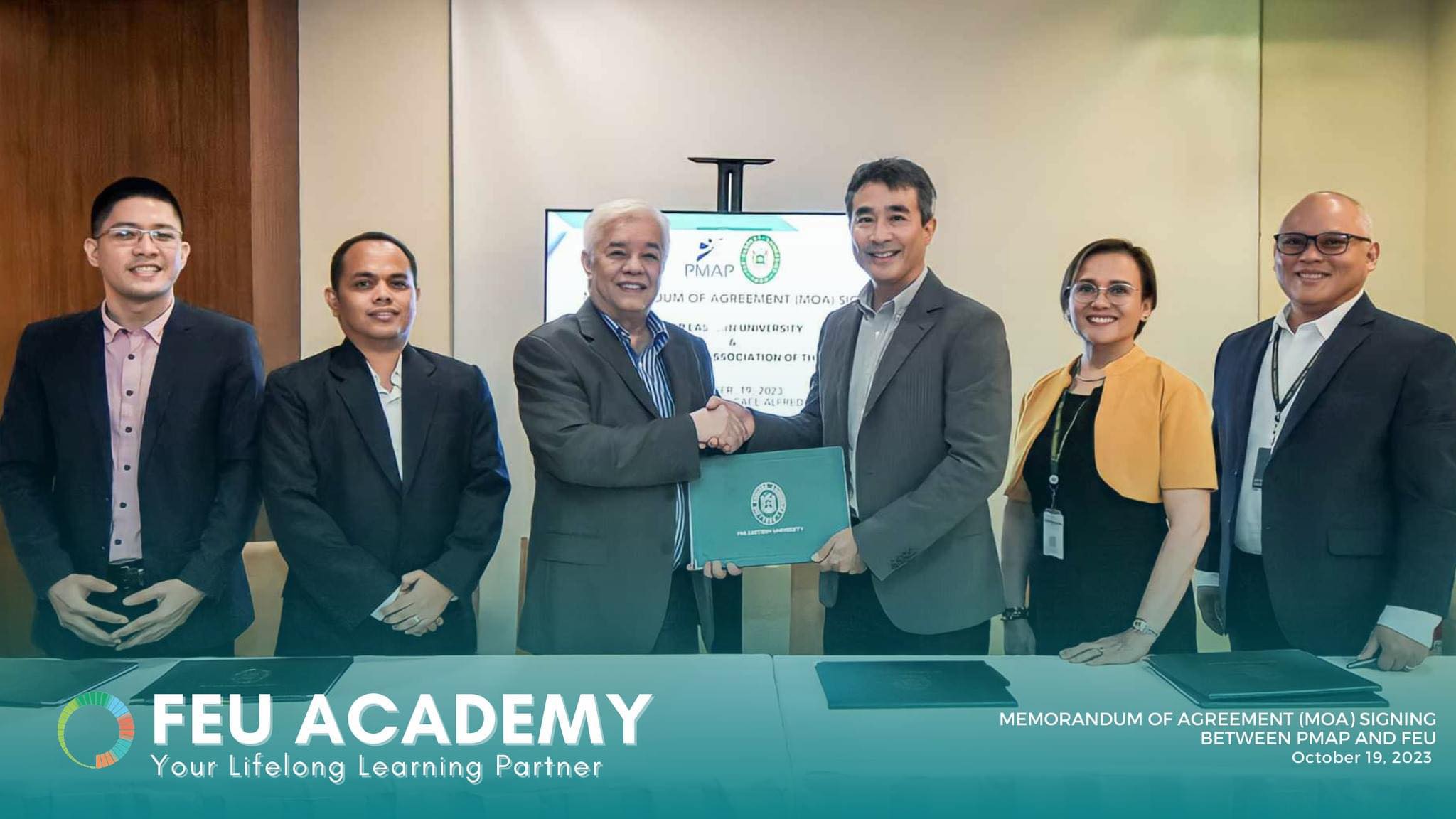“ELEVATE your bathing experience with nature’s finest scents: indulge in Local Fusion; discover the allure of Earthy Floral; revitalize your day with Summer Fresh; and embrace the renewal of Morning Fresh,” said Far Eastern University (FEU)’s Community Extension Services (CES).
The university’s CES is endorsing the four variants of Amparo—the soap that they produce with the women of Quilitisan, Calatagan, Batangas.
“The women were provided with piece-rate for the soap production of Amparo,” said Dr. Luzelle Anne Ormita, CES director, thus fulfilling FEU’s adherence to the UN Sustainable Development Goal (SDG) 8: Decent Work and Economic Growth.
Ormita added that since the women are mostly homemakers, having an alternative source of income that does not require them to leave their homes is an opportunity they would not likely miss. In doing so, it affects their wellbeing positively as they have additional income for their basic needs, thus enhancing SDG 3: Good Health and Wellbeing.
“Alongside our other programs for Quilitisan, Amparo will help us achieve ‘SDG 11: Sustainable Cities and Communities’ in the long run,” said Ormita.
Jacqueline Marjorie Pereda, CES leader of Project Calatagan that spearheads production, said working with the partner community on the operation was fulfilling, as it involved a holistic approach that included various training sessions, ongoing quality control measures, and a commitment to continuous process improvement.
“As the project leader, witnessing the overall process may be tedious, but the tangible products of their labor make us realize that this activity is truly rewarding. Starting from scratch and seeing it evolve into a source of income has been a gratifying experience for the community members,” said Pereda.
Pereda said one of the main advantages that the partner community members have gained in the production and distribution of Amparo is economic empowerment. Their active participation in the whole process gained them valuable skills that translate into income-generating opportunities; hence creating an additional source of revenue for the community members.
“Also, the activity provided opportunities for skills training, capacity building, leaving a spirit of confidence, and self-reliance,” said Pereda.
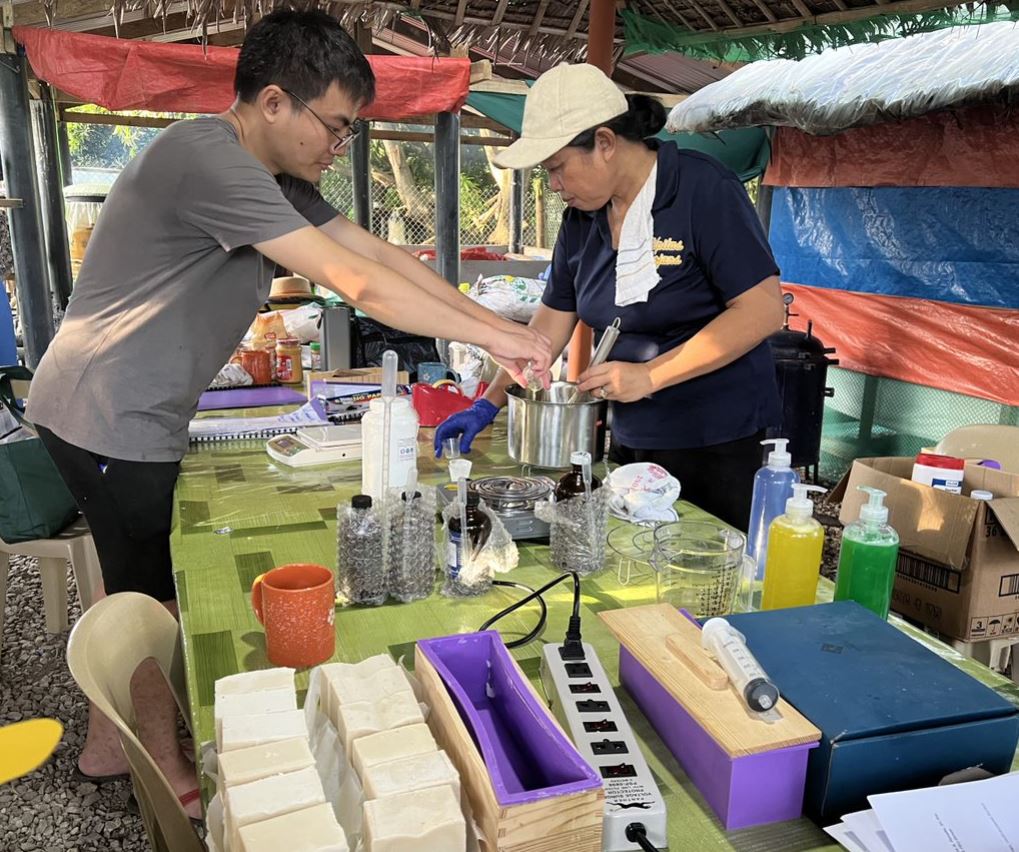
Jim Cruz, the chemist who is working closely with CES on the project, said the development of the Amparo formulation was first conducted in the FEU laboratory, where he made several batches—adjusting the percentage of oils, fragrances, and lye.
“Rounds of consultation were made by Dr. Ormita, colleagues from CES, Corporate Affairs, FEU Bookstore, ane me on deciding the final scents for Amparo, its dimensions, and packaging,” said Cruz.
Cruz said upon coming up with an ideal mix they supervised training with the partner community in July, August, and October; actual production of Amparo started in November 2023.
“In each of the training process, our community partners were given short discussions about the safety and proper handling of chemicals, followed by a hands-on workshop where each participant was asked to create Amparo,” said Cruz.
Ormita credited Senior Vice President Maria Teresa Trinidad Tinio for the idea of having handmade soap to be produced by a partner community of FEU. The product name Amparo came from Graciel Lintag of the Academic Affairs Office.
“Fortunately, we have a chemist who is actively involved in CES activities, and he developed various scents for Amparo. We were requested to produce handmade soap using local scents like Ylang–ylang and Sampaguita combined with other essential oils so the soap will have an aroma-therapeutic effect,” said Ormita.
As CES director, Ormita’s task was to integrate everyone’s efforts. She also worked on all the approvals needed to execute the project—from the budget, training, presentation of initial and final product, costing, delivery of materials to the community, pick up of the soap, and turnover to FEU Bookstore. For its part, FEU Bookstore coordinated with CES for the packaging and orders.
Cruz said working with FEU’s community partners has been a great pleasure. Through this venture, he said, he was able to share with them the practical side of chemistry in which they put more value from raw materials through simple chemical reactions.
“The project came with some problems, such as the logistics of bringing materials from Manila to Calatagan and the quality checking through online communication. Despite this, the project went smoothly and is successful in providing our partners with another source of financial support,” said Cruz.
Ormita agreed that it is fulfilling to see the women learning a new skill, enjoying what they do, appreciating the opportunity given to them, and seeing them happy after they received their piece-rate.
“We asked them to try the product and provide feedback. They love the scents and once they saw the final packaging done by FEU Bookstore, they were delighted to see how beautiful it turned out,” said Ormita.
Pereda said Amparo comes in a standard rectangular form, 6 cm x 7 cm x 2.5 cm. As Amparo is yet in the early stages of production, she added that to include arranging for Food and Drug Administration clearance or approval is a smart move, which is still to be implemented soon as well.
“Long-term success builds on proactively exchanging with relevant governmental agencies in the belief that quality, safety, and legal requirements are paramount for the production and distribution of Amparo,” said Pereda.
Cruz said since the certificates of analysis for raw materials are readily available from CES suppliers, there is a good chance of getting certified.
“I have met some chemistry colleagues and they have complimented FEU’s work with the community. They also mentioned that the Amparo soap bars are comparable with those sold at artisan shops in shopping malls. The scent they liked most is the Summer Fresh. My colleagues want to buy Amparo as soon as the production ramps up,” said Cruz.
“Most users have found them pleasant and long-lasting. This early reaction seems to indicate that the rollout of Amparo is going very smoothly, and that users are enjoying its fragranced properties,” said Pereda.
Cruz said the scents aim to showcase how the aroma of flowers blends well with tropical extracts.
“In a way, it gives the soap a Filipino touch compared with commercial soaps. The addition of natural extracts from peppermint, citrus fruits, and bergamot give more benefits to the soap’s cleansing action,” said Cruz.
Amparo is a symbol of FEU culture, which gives importance to social responsibility. It has a meaningful story behind them, said CES, quoting Collins Dictionary’s definition of the Spanish word amparo to mean protección (protection) or refugio (shelter or refuge). Amparo is also the first name of Nicanor Reyes, Sr.’s spouse.
